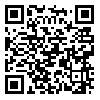Thu, Jan 29, 2026
[Archive]
Volume 1, Issue 4 (Summer 2023)
CPR 2023, 1(4): 394-409 |
Back to browse issues page
Download citation:
BibTeX | RIS | EndNote | Medlars | ProCite | Reference Manager | RefWorks
Send citation to:



BibTeX | RIS | EndNote | Medlars | ProCite | Reference Manager | RefWorks
Send citation to:
Yazdani Z, Rafiei A. Imbalance of Regulatory T Cells in Autism Spectrum Disorder: A Review Study. CPR 2023; 1 (4) :394-409
URL: http://cpr.mazums.ac.ir/article-1-59-en.html
URL: http://cpr.mazums.ac.ir/article-1-59-en.html
Department of Immunology, Molecular and Cell Biology Research Center, Faculty of Medicine, Mazandaran University of Medical Sciences, Sari, Iran.
Abstract: (1408 Views)
Background and Objective Neuroinflammatory processes in autism spectrum disorder (ASD) is related to the immune system. Regulatory T cells (Tregs) are essential elements of this association. Deficiency in these cells may have a role in worsening of ASD.
Materials & Methods This study reviews the physiology of Tregs and their molecular mechanisms in regulating the immune system, their role in neurological disorders, abnormality in Treg number and function in patients with ASD, and the association of neuroinflammatory processes with Tregs. The comprehensive literature search was performed by electronic databases such as Google Scholar, PubMed, Web of Science, and Scopus to July 2023.
Results Expression of cytokines in Treg induction decrease in ASD patients which causes Th/Treg cells imbalance and deficiency in Treg cells. This may be clinical evidence of ASD. However, there are scant research on molecular mechanism of Tregs causing healthy behaviors in ASD patients. Future studies on the effect of Th/Treg cells imbalance on attenuating behavior deficits and finding treatments for ASD based on the activation of Tregs and regulation of the immune system are recommended
Conclusion The use of approaches that balance the function of the immune system, especially through the activation of Tregs, may help improve the health of the patients.
Materials & Methods This study reviews the physiology of Tregs and their molecular mechanisms in regulating the immune system, their role in neurological disorders, abnormality in Treg number and function in patients with ASD, and the association of neuroinflammatory processes with Tregs. The comprehensive literature search was performed by electronic databases such as Google Scholar, PubMed, Web of Science, and Scopus to July 2023.
Results Expression of cytokines in Treg induction decrease in ASD patients which causes Th/Treg cells imbalance and deficiency in Treg cells. This may be clinical evidence of ASD. However, there are scant research on molecular mechanism of Tregs causing healthy behaviors in ASD patients. Future studies on the effect of Th/Treg cells imbalance on attenuating behavior deficits and finding treatments for ASD based on the activation of Tregs and regulation of the immune system are recommended
Conclusion The use of approaches that balance the function of the immune system, especially through the activation of Tregs, may help improve the health of the patients.
Type of Study: review |
Subject:
Psychology of Exceptional Children
Received: 2023/03/20 | Accepted: 2023/05/25 | Published: 2023/07/1
Received: 2023/03/20 | Accepted: 2023/05/25 | Published: 2023/07/1
Send email to the article author
| Rights and permissions | |
 |
This work is licensed under a Creative Commons Attribution-NonCommercial 4.0 International License. |







